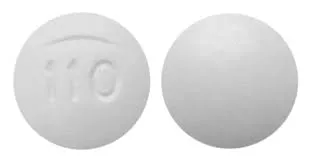- Afrikaans
- Albanian
- Amharic
- Arabic
- Armenian
- Azerbaijani
- Basque
- Belarusian
- Bengali
- Bosnian
- Bulgarian
- Catalan
- Cebuano
- Corsican
- Croatian
- Czech
- Danish
- Dutch
- English
- Esperanto
- Estonian
- Finnish
- French
- Frisian
- Galician
- Georgian
- German
- Greek
- Gujarati
- Haitian Creole
- hausa
- hawaiian
- Hebrew
- Hindi
- Miao
- Hungarian
- Icelandic
- igbo
- Indonesian
- irish
- Italian
- Japanese
- Javanese
- Kannada
- kazakh
- Khmer
- Rwandese
- Korean
- Kurdish
- Kyrgyz
- Lao
- Latin
- Latvian
- Lithuanian
- Luxembourgish
- Macedonian
- Malgashi
- Malay
- Malayalam
- Maltese
- Maori
- Marathi
- Mongolian
- Myanmar
- Nepali
- Norwegian
- Norwegian
- Occitan
- Pashto
- Persian
- Polish
- Portuguese
- Punjabi
- Romanian
- Russian
- Samoan
- Scottish Gaelic
- Serbian
- Sesotho
- Shona
- Sindhi
- Sinhala
- Slovak
- Slovenian
- Somali
- Spanish
- Sundanese
- Swahili
- Swedish
- Tagalog
- Tajik
- Tamil
- Tatar
- Telugu
- Thai
- Turkish
- Turkmen
- Ukrainian
- Urdu
- Uighur
- Uzbek
- Vietnamese
- Welsh
- Bantu
- Yiddish
- Yoruba
- Zulu
oct. . 30, 2024 19:45 Back to list
what drugs are used to kill parasites
Understanding Drugs Used to Kill Parasites
Parasites are organisms that live on or in a host organism and rely on it for survival. They can cause a variety of diseases in humans and animals, leading to significant health issues and economic losses. To combat these parasitic infections, various drugs have been developed that target these organisms, effectively leading to their destruction. This article discusses the different classifications of antiparasitic drugs and their associated uses.
Understanding Drugs Used to Kill Parasites
Anthelmintics are a class of drugs that target helminths, which are parasitic worms, such as roundworms and tapeworms. Commonly used anthelmintics include mebendazole, albendazole, and praziquantel. Mebendazole and albendazole are effective against a range of intestinal worms and work by inhibiting the worms’ ability to absorb glucose, ultimately leading to their demise. Praziquantel, on the other hand, is particularly effective against schistosomiasis, a disease caused by trematodes (flukes), and causes paralysis in the parasite, allowing the host’s immune system to eliminate it.
what drugs are used to kill parasites

Antiprotozoals are used to treat infections caused by protozoan parasites, such as Giardia, Leishmania, and Trypanosoma. Metronidazole and tinidazole are well-known for treating Giardia infections, which cause gastrointestinal distress. For leishmaniasis, drugs like pentavalent antimonials and miltefosine are used, targeting the Leishmania donovani parasite. In cases of Trypanosomiasis, also known as sleeping sickness, treatments vary depending on the stage of the disease, with drugs such as suramin and melarsoprol being administered.
It is also important to note the challenges associated with treating parasitic diseases, such as drug resistance and side effects. The overuse and misuse of antiparasitic medications can lead to the development of resistance, which diminishes the effectiveness of these drugs. Therefore, it is crucial to use these medications judiciously and in accordance with medical guidance.
In conclusion, a variety of drugs are available for killing parasites, each serving a distinct purpose based on the type of parasite involved. Antimalarials, anthelmintics, and antiprotozoals are integral to the management and treatment of parasitic infections. Continued research is necessary to develop new medications and strategies to combat these persistent health threats effectively, especially given the rising concerns regarding drug resistance. Through the careful application of existing treatments and the development of new therapies, we can hope to reduce the burden of diseases caused by parasites and improve health outcomes globally.
-
Guide to Oxytetracycline Injection
NewsMar.27,2025
-
Guide to Colistin Sulphate
NewsMar.27,2025
-
Gentamicin Sulfate: Uses, Price, And Key Information
NewsMar.27,2025
-
Enrofloxacin Injection: Uses, Price, And Supplier Information
NewsMar.27,2025
-
Dexamethasone Sodium Phosphate Injection: Uses, Price, And Key Information
NewsMar.27,2025
-
Albendazole Tablet: Uses, Dosage, Cost, And Key Information
NewsMar.27,2025













